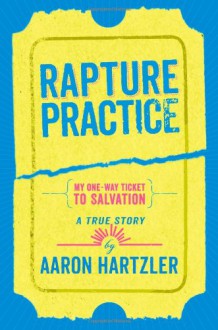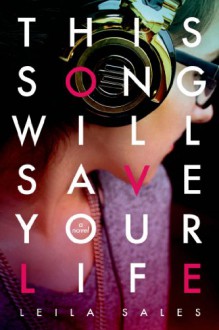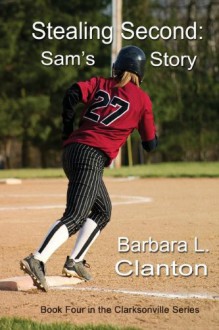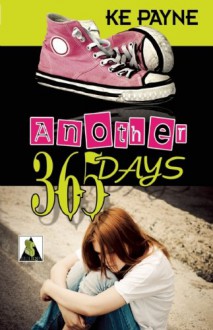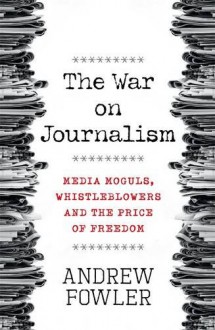
The problem that I find with some books, especially these non-fiction books, is that there is so much in them that it can be difficult to remember all of the points that the author has made without having to write copious notes. The other problem is that since I am incredibly time poor I really have little time to craft a brilliant and concise review based upon these notes, so in the end I generally just read through the book and hope for the best when I come to writing the review (usually the day that I have finished it because if I end up leaving it too long I'll end up having a huge backlog of reviews that I'll never get through).
I have to say that it was been quite a while since I have read a good non-fiction book, though I have to say that this particular one did drag on a bit, especially when he was describing in minutae conversations that occurred between editors, journalists, and their leaks. He also went into great detail of the stress and the decisions on whether to publish and when, which once again I found that it cause the book not only to drag on a bit, but to also make it sound like some form of soap opera. However, we must remember that these decisions weren't taken lightly because the media, even the left leaning newspapers such as the Guardian and the Fairfax newspapers, are still very much under the heal of what are becoming quite tyrannical governments. However, there are a few things that I wish to discuss that I got out of this book.
The Conservative Right to Rule
A couple of chapters of this book talks about how the media went to war against a couple of left wing governments in the past (and even in the present). For instance the government of Howard Wilson in England and the government of Gough Whitlam in Australia, found themselves in the wrong side of an angry media. This I suspect is what has caused the labour party to shift dangerously to the right, which has in turn pushed conservative parties further to the right. This is not surprising because the conservative governments have always represented the wealthy elite (well, not always, but generally). The thing with conservative governments is that they like the status quo – which is why they are conservative – and the status quo generally means that the rich can continue to make money, no matter what the consequences. The problem is that if the voting public actually knew what the conservative governments were about then nobody would vote for them, which is why they resort to getting elected through deceit, propaganda, and the use of the media.
The thing with the media is that they are, in all cases, controlled by the wealthy elite. Even the journalists who write for them tend to inhabit the upper crust of society. I have read a number of articles in various newspapers (including the left leaning Fairfax) where the journalists are bragging about how they are in the highest income tax bracket and how they fly business class everywhere while us plebs have to put up being squeezed like sardines into economy class (not that I could actually justify paying the exorbitant fees that business class charges). As such there is generally a bias in favour of governments that support the status quo.
However, it is not the wealthy that also support the status quo – the unions do as well. There was an interesting point Fowler made when he spoke about how Rupert Murdoch was attempting to transform his London newspapers into a more technologically efficient production by creating a sophisticated computer network that would eliminate the need for a typing pool and and printers. This angered the unions because it meant that a lot of their workforce would be made redundant. Now, I'm no big fan of Murdoch, and I do support the unions in some cases, but in this instance what we are seeing is that the working class is actually working against innovation (which I believe is a good thing).
However, that doesn't let the conservatives off the hook because we have other areas where they are acting against innovation because of the effect that it will have on their profits. Take Murdoch once again. In Australia he has a joint monopoly over the pay TV network Foxtel (in Australia you have only one pay TV network). In 2007 the Labor government was elected on a platform of installing superfast internet connections straight to the home, which meant that Murdoch would suddenly find himself in competition with online streaming services such as Netflix (Foxtel also offers an online service as well). Seeing his monopolistic position under threat he then turned against the Labor government, and when the Coalition was re-elected in 2013 they ended up scrapping Labor's internet plan to put in place a much more limited, and in turn much more costly, alternative.
Leaking Taps
It goes without saying that government's don't like leaks – it embarrasses them and exposes their criminal acts. Poor Tony Abbott, in the weeks before he was knifed in the back, didn't just have to deal with leaks, but with a gushing torrent that flowed out of the cabinet room and into the nation's media. However his problem was only embarrassment and provided ever more evidence of his incompetency as a prime minister. The leaks go much deeper when we are talking about illegal acts being committed by a government during wartime. It is interesting that the Nazi's were able to keep their final solution quiet for so long while atrocities such as the Mai Lai massacre in Vietnam and the scandal at Abu Graib were released for the world to see (though it may have something to do with them having a much tighter control over the media than does the modern democracy).
Fowler talks about a number of important leaks, beginning with the Pentagon Papers up to the revelations released by Edward Snowden. Elsberg actually got off really lightly, namely because the government's case against him was thrown out due to illegal wire taps. This is not the case these days as Chelsea Manning is now serving a 30 year prison sentence, Julian Assange is holed up in the Equadorian embassy, and Edward Snowden is living on borrowed time in Russia. The government has learned from its mistakes with Elsberg and are getting ever more serious in threatening would be whistle blowers and attempting to make examples of those who have taken the courage to stand up, produce evidence, and say to the world 'this is wrong'.
Fowler refers to protections in the United States and Europe, such as the 4th Amendment and the European Charter of Human Rights, that seeks to protect such whistle blowers, though governments nethertheless resort to Espionage Acts and claim that such revelations work to aid the enemy. Thus it is not surprising that Bush created an endless war on terror since this not only creates an enemy, but also provides an excuse to punish the release of such sensitive information. Further, it also puts pressure on newspapers to be very circumspect in what they print, because if the government deems that a publication is going to hurt it's war efforts then they can have the paper shut down. Fowler even tells a story of how British Intelligence entered the offices of the Guardian and destroyed all of the harddrives that contained the information provided to them by Snowdon.
Australia has gone one step further. The only freedom of speech that we have is the freedom of political speech which is implied in the constitution. This has enabled the government to enact laws that not only punishes whistle blowers, but also punishes journalists for publishing the information that they have released.
The Changing Landscape
The internet has changed the world in an incredible way and has hit many traditional businesses incredibly hard – no more so than the newspapers, and the print media has struggled ever since to attempt to remain relevant in its onslaught. The thing about the internet is that it has made access to information not just easy, but cheap. As such people have turned away from the print media and onto the internet in droves, and many of the traditional newspapers have struggled to make a profit. It is even suggested that some papers in the Murdoch Empire have to be supported by other papers because they are operating at a loss.
A number of newspapers have succeeded in creating paywalls, such as the Wall Street Journal and the Australian Financial Review. However these newspapers generally target a niche market, which means that when it went online their niche market followed them (and having an interest in the stock market, I have to say that the free publications tend to be of pretty poor quality). However, this didn't work with the traditional papers because people simply weren't interested in paying for the content. Sure, paying $1.00 for some saucy tales in the local rag was okay a decade ago, but these days there are so many websites that offer the same sordid offerings for free, nobody sees the need to fork out that $1.00 anymore (let alone pay for access).
These papers used to stay afloat through advertising however the internet changed all that. People don't buy newspapers anymore to peruse the classifieds, they go to the internet. If you want to buy a car, a house, second hand goods, or even look for a job, this is now all on the internet. When we bought our house we found it by perusing the internet. I don't buy the paper to look for jobs anymore because, once again, they are all on the internet. In fact if I want some second hand goods, once again I go to the internet. The newspapers no longer have a monopoly on ads, and this has hurt them substantially. In fact the ads that they gain on the internet does not make them anywhere as much money as they did before. Furthermore, some paywalls are actually very easy to defeat (especially the ones that give you a limited number of free articles) – just clear your cookies every so often.
The Security State
The thing about the War on Terrorism is that the government has actually done a very good job in convincing us that terrorists could strike any place and at any time. The catch is that not all that many people have actually died of a terrorist attack in a western nation. However they have convinced us that not only do we need to be vigilant, but that they need greater powers to fight this threat. The problem is that they have already had those powers, it's just that they weren't used all that well. Take for instance the Sydney siege – the nutter that was responsible had been on the watch list for years, but they then decided to take him off. If they had kept watching him they might have stopped him before he killed two innocent victims.
Then there is the mandatory collection of data (not just metadata, but the data that the NSA has been collecting). Once again it is actually very easy to circumvent it. Fowler speaks of how a couple of journalists (and Manning) were caught through their slack use of the internet, and that is something that we need to be aware of. Okay, I'm not writing this anomalously, and really have no desire to start becoming invisible on the net (particularly since I would prefer people to know that I am the author).
The concerning thing is the suggestion that the NSA actually has the power to activate and hijack our smartphones, even if they are turned off. This is all done through the SIM card. The thing with smartphones is that you need to register to get a SIM card. Once again there are ways around this, even if it involves only using WiFi hotspots (though a number of them require you to pre-register, and pay by credit card, beforehand, which means that they are able to track you, though once again there are ways around this). Mind you, even back in the days of the old clunky phones that could only send texts and make phone calls, I knew that the government could track you, however with modern technology they can be much more precise.

 Log in with Facebook
Log in with Facebook 

